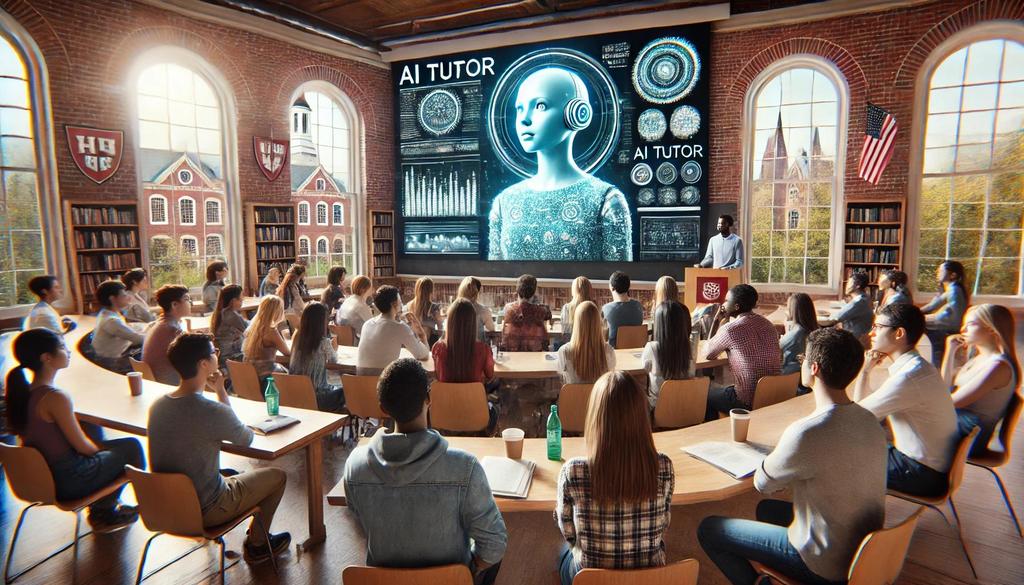
Harvard University, one of the world’s premier educational institutions, has long been at the forefront of integrating cutting-edge technology into its educational framework. As the world of higher education evolves, Harvard is leveraging educational technology to enhance the learning experience, foster innovation, and make quality education more accessible. From digital platforms to artificial intelligence, Harvard’s educational technology initiatives are reshaping how students, faculty, and researchers engage with knowledge.
Key Aspects of Harvard’s Educational Technology
- Digital Learning Platforms and Online Courses
Harvard has expanded its reach and impact through online learning platforms like Harvard Online Learning and HarvardX. These platforms offer a range of free and paid courses in various disciplines, including computer science, business, health, and humanities. HarvardX, in particular, has provided thousands of learners worldwide with access to the university’s rigorous academic content, enabling global learners to study at their own pace.
Harvard Online Learning also partners with platforms like edX and Coursera to deliver online programs, offering certificate programs, professional development opportunities, and even entire degrees.
Example:
- CS50x: Harvard’s flagship introduction to computer science course, offered online via edX, has reached over 2 million learners globally.
- Artificial Intelligence and Adaptive Learning
Harvard’s integration of artificial intelligence (AI) into education has been pivotal in enhancing personalized learning. Tools like adaptive learning platforms use AI to tailor the curriculum to meet the individual needs of students, providing real-time feedback and recommendations. This technology helps students grasp concepts at their own pace, ensuring that no one is left behind.
Example:
- AI-Driven Tutoring: AI-based systems at Harvard are used for subjects like mathematics and computer science, where algorithms analyze student responses and suggest customized exercises.
- Virtual and Augmented Reality (VR/AR)
Harvard is also experimenting with virtual reality (VR) and augmented reality (AR) technologies to create immersive learning experiences. These tools allow students to engage in simulations and real-world scenarios, enhancing their practical understanding of complex subjects, such as medical procedures, history, and science.
Example:
- Harvard Medical School’s VR Labs: Used to simulate medical procedures, allowing students to practice in a risk-free, controlled environment.
- Collaborative Technologies and Innovation
The use of collaborative technologies is another significant aspect of Harvard’s educational technology. Tools such as Google Classroom, Slack, and Zoom are integrated into everyday learning, making it easier for students and faculty to communicate and collaborate, whether in traditional classrooms or remote settings. These platforms support group work, discussions, and seminars, facilitating a more engaging and connected educational experience.
Example:
- Harvard Business School Online (HBS Online): Leveraging platforms like Zoom for live, interactive classes and discussions with faculty and peers.
ALSO READ :- https://virenbrew.com/the-great-moon-hoax-1835-a-pioneering-example-of-media-sensation/
Harvard’s Educational Technology Adoption Chart
| Technology | Application | Impact |
| HarvardX & Online Learning | Free and paid courses, certificate programs | Expands access to high-quality education globally |
| Artificial Intelligence | Adaptive learning tools, AI-based tutoring systems | Personalized learning paths and feedback |
| Virtual Reality (VR) | Simulations for medical and scientific learning | Immersive, practical experience without risk |
| Collaborative Tools | Google Classroom, Zoom, Slack for communication | Enhanced interaction and collaboration |
Conclusion
Harvard University’s approach to educational technology exemplifies how traditional education systems can integrate innovative tools to enhance learning, accessibility, and collaboration. By adopting technologies like AI, VR, and online learning platforms, Harvard is not only offering an enriched academic experience but is also setting the stage for the future of education. Whether through personalized learning, global accessibility, or immersive simulations, Harvard continues to be a leader in transforming education for a digital-first world.
Follow us on INSTAGRAM – https://www.instagram.com/virenbrew/
Follow us on TWITTER (X) – https://x.com/VIRENbrew
Follow us on LINKEDIN – https://linkedin.com/in/viren-brew-230415328/
Follow us on FACEBOOK – https://www.facebook.com/profile.php?id=61565127137999 Follow us on YOUTUBE – https://www.youtube.com/@VIRENbrew

No responses yet